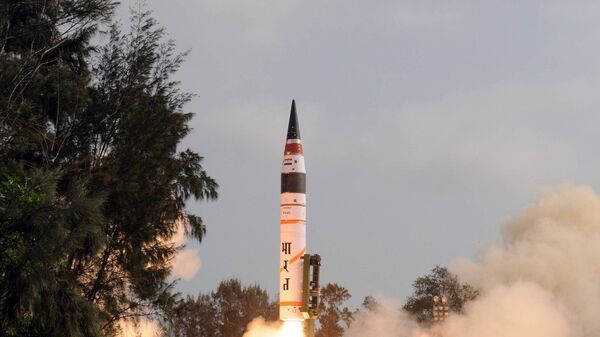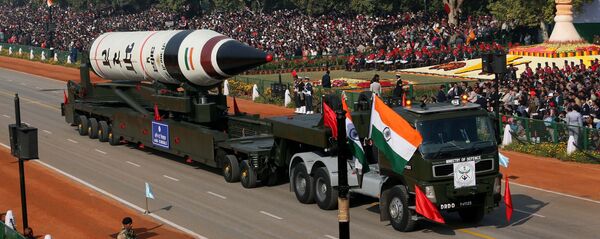India’s military testing is "common knowledge," Air Chief Marshall Arup Raha said Wednesday. Raha called out Beijing, without naming names, for "transfer of technology which is forbidden," likely a nod to the common Chinese practice of stealing technology and design data from other nations to reverse-engineer for their own military projects.
On Tuesday, Beijing reacted to the successful Indian ICBM launch saying that it would interfere with UN Security Council rules, where China has a permanent seat, and disrupt strategic geopolitical balance in South Asia.
Raha noted that the testing was not motivated by aggression or hostility, but rather that India needed to build its "capability to deter," adding that an "adversary who is strong" can only be deterred by the "capability…to strike deep into the adversary’s heartland."
India’s growing missile arsenal is "not targeted against any particular country," according to Vikas Swarup, External Affairs Ministry spokesperson, but India’s "strategic autonomy and growing engagement contributes to strategic stability."
The Agni-V could prove to be India’s most potent weapon. It boasts a range of more than 5,000 km, covering China it its entirety. On Monday, the 17-meter, 50-ton missile hit all intended targets, according to India’s Defense Research and Development Organization.



